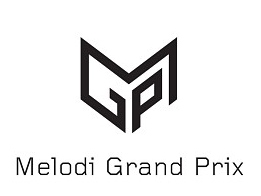
Although winner of Norwegian Melodi Grand Prix Carl Espen is proving to be extremely popular abroad, dark clouds have gathered on NRK’s Eurovision horizon – audience figures for this year’s final have seen a sharp decrease. Could Melodi Grand Prix be losing its pulling power in Norway?
Broadcaster NRK just can’t seem to do anything right with regards to organising this year’s Norwegian preselection, coming under fire from both former participants, the media and not least viewers. NRK was forced to slash the production budget for this year’s edition of Melodi Grand Prix significantly, a decision which was one of the main factors behind their decision to alter the format of the show. Financial burden may have been a major headache for the organisation, but the negatives seem to be far outweighing the positives for NRK.
Weekly qualifying heats staged around the country were scrapped in favour of moving all three heats to the capital Oslo and holding them on three consecutive evenings; the 7th, 8th and 9th of March. Despite music director Vivi Stenberg’s sterling work in selecting fifteen contemporary entries of high quality, the three semi finals attracted the lowest viewing figures ever. The three qualifying heats were seen by 641,000, 644,000 and 551,000 viewers respectively. Just what has gone wrong? Has the Norwegian public become disenchanted with the show and/or concept?
The decision to move the three heats to Oslo and not least squeezing them into the course of one single weekend no doubt contributed to the drop in TV ratings. When heats were held around the country, they were made into much more of an event, thus attracting far more viewers outside of Oslo. But despite the professionalism of hosts Erik Solbakken and Jenny Skavlan, far too many empty seats in the host venue did not come across well on screen.
The grand final, which took place on Saturday the 15th of March, was seen by an average of 755,000 viewers, thus beating the rival programme Hver Gang Vi Møtes shown on TV2 by more than 220,000. Nevertheless, these figures are a marked drop compared to previous finals; 975,000 tuned in last year to see Margaret Berger win the show, and a staggering 1,524,000 watched Alexander Rybak storm to victory in 2009. But it wasn’t only the TV ratings which suffered a heavy blow; winner Carl Espen was the pre final favourite with his ballad Silent Storm, and he won the final with only 53,712 votes, with Linnea Dale and High Hopes coming in second place on 39,086 votes. Compared to last years winner Margaret Berger’s total of 90,032 and Stella Mwangi‘s total of 248,601 televotes in 2011, it’s easy to see that the amount of viewers have decreased significantly, partly due to the drop in viewers but also perhaps owing to a distinct lack of interest with those watching.
On a brighter note, many more of the entries to compete in this year’s preselection are attracting significantly more airplay than compared to previous years and Carl Espen is currently sitting pretty on the top spot of the Norwegian iTunes singles chart. This is however only one of very few positives for NRK following the conclusion of this year’s Melodi Grand Prix; a clear indication that in order to ensure future success, NRK will be forced back to the drawing board to rethink their strategy in time for 2015.
You might also like to read:



















